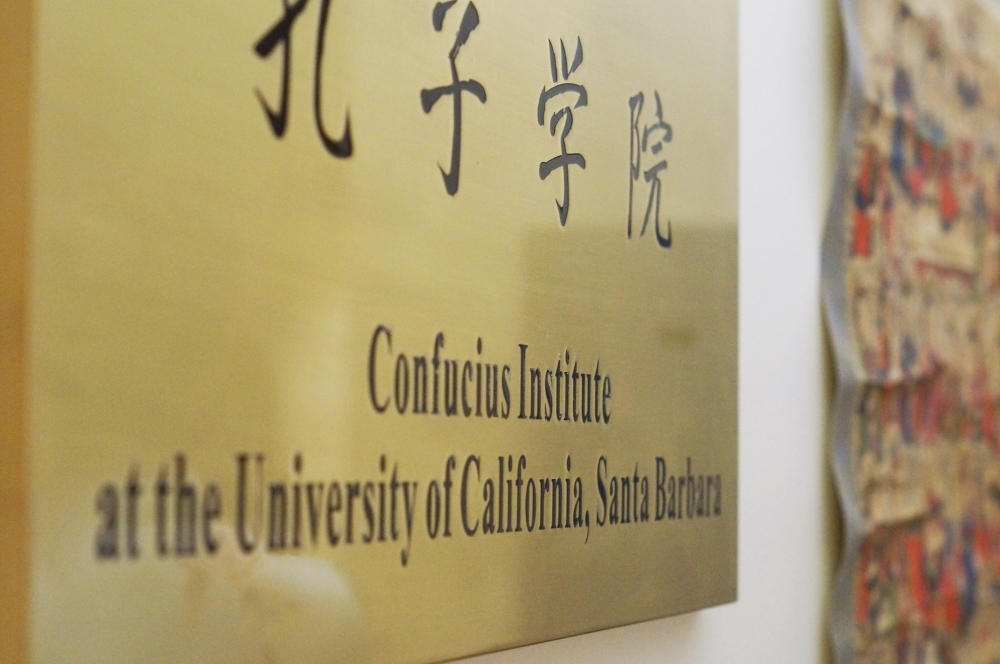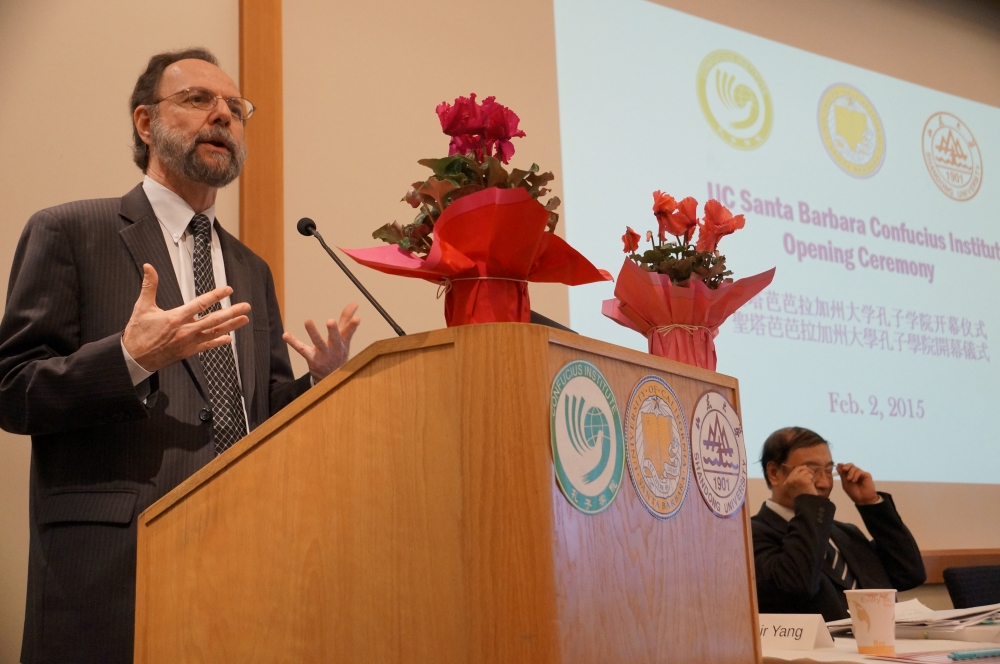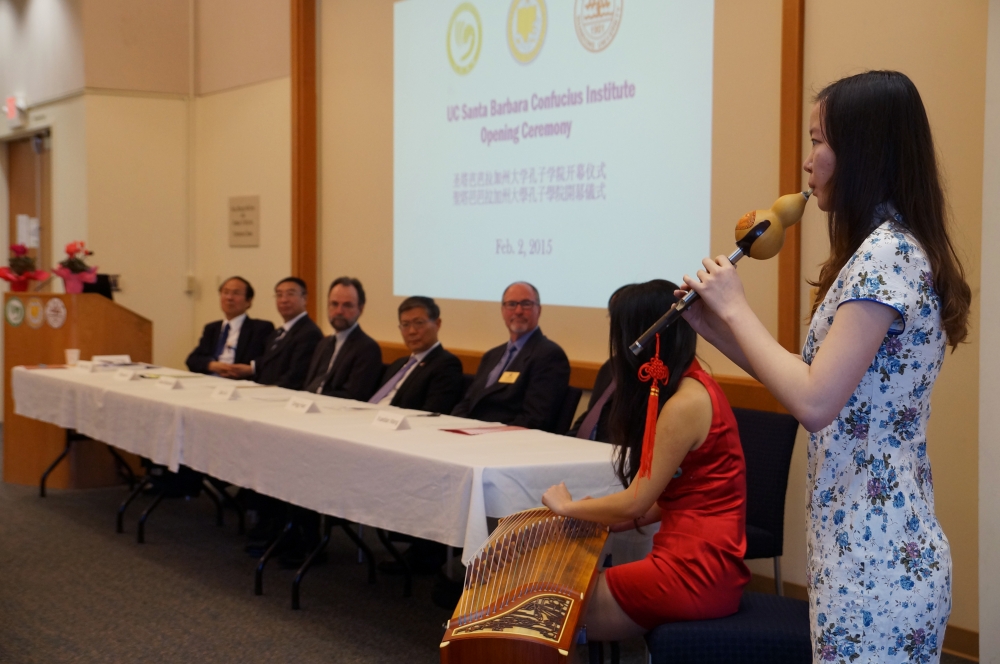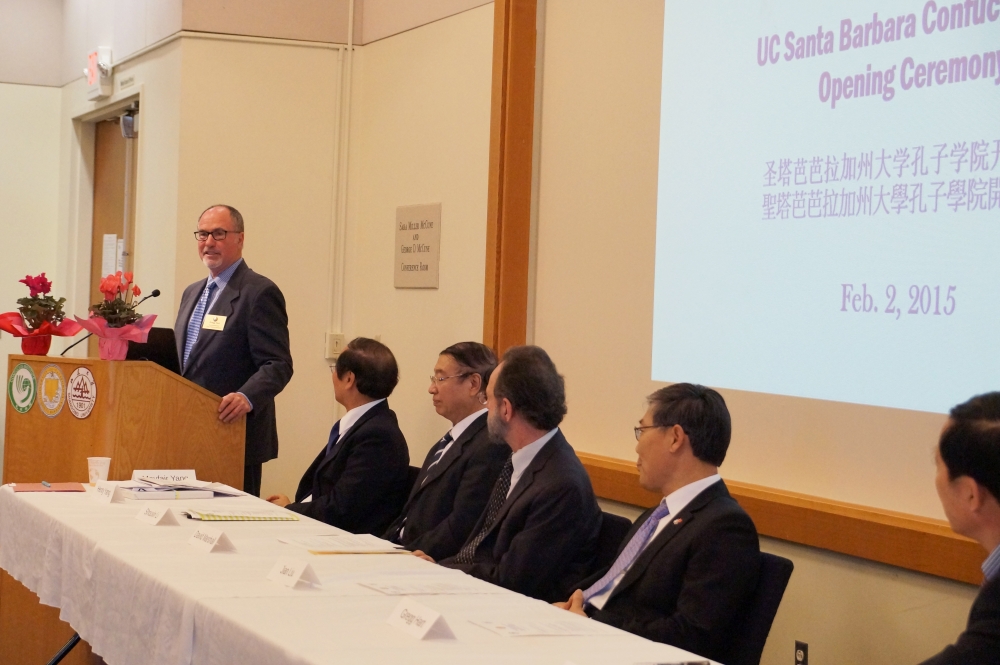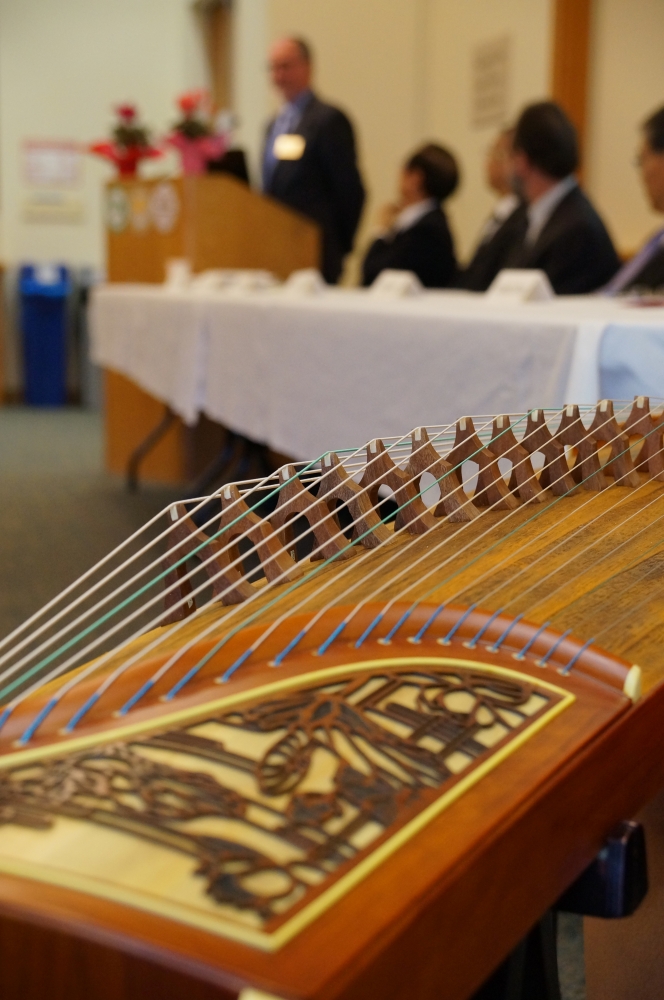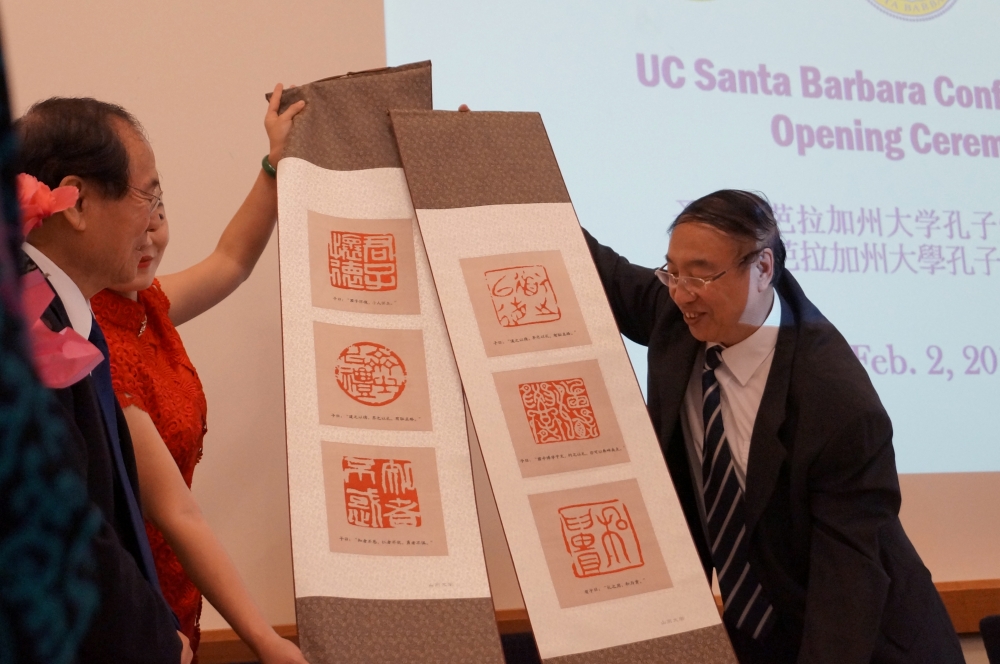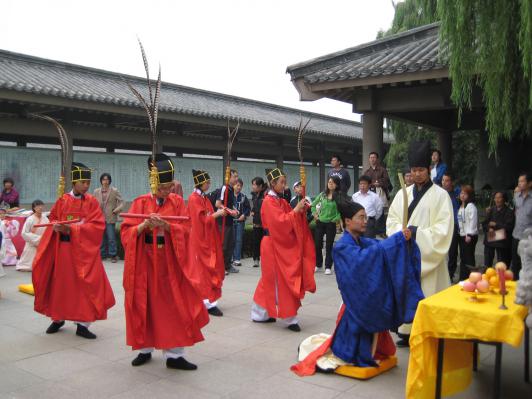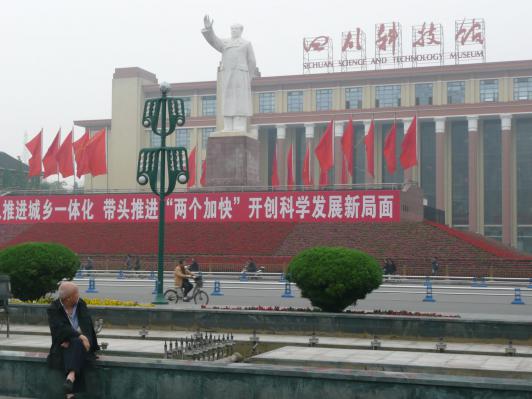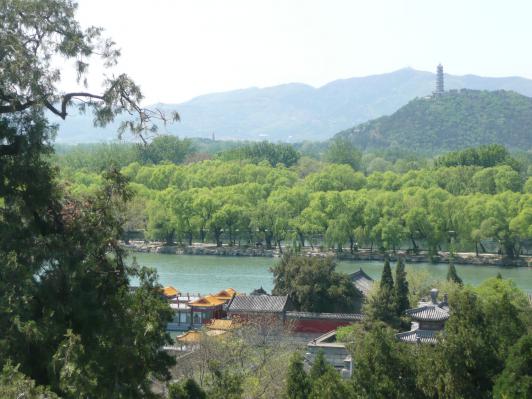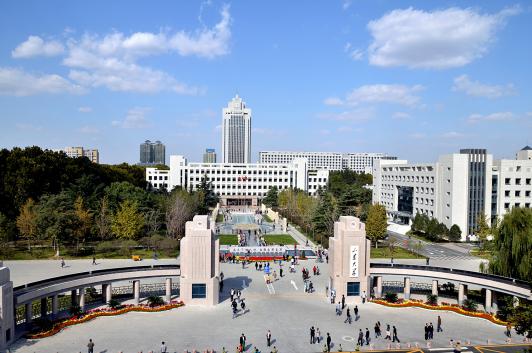UC Santa Barbara Establishes Confucius Institute

Partnering with Shandong University in China, UC Santa Barbara is establishing a Confucius Institute on campus that will be dedicated to teaching and research related to Chinese language, culture and history.
“There are at present over 400 Confucius Institutes around the world,” said Mayfair Yang, the institute director and a professor of East Asian language and cultural studies and of religious studies. “Practically every country in the world has at least one.”
Joining with Shandong University to create a Confucius Institute seems particularly appropriate given that Confucius himself lived in the province in northeastern China. “It’s a very ancient culture up there,” said Yang. “For much of the 20th century, Confucius was put down by modernizers of China. But more recently, people have wanted to go back to the cultural heritage of Confucius and he’s being taught in the schools and in intellectual research institutes. There is also a renewed interest in Buddhist and Daoist philosophes and religions across all walks of life in China today.”
Funded by the Office of Hanban in Beijing — which is supported by the Chinese government’s Ministry of Education — along with matching funds from UC Santa Barbara, the institute aims to be a campus center for China studies and education about China. “The world doesn’t really know a lot about China,” Yang explained. “China kind of closed itself off for a long time in the 20th century, so there’s kind of a catch-up game. People know the country has become influential and is in the news, but they don’t know enough about the history and culture.”
And it’s a very long history, indeed.
“China is a very dynamic place today,” Yang said. “And as a professor engaged in teaching about China, I have found that in the United States people don’t know enough about the country. What the media presents is only a partial view.”
The institute, she continued, will provide the academic means to make people more aware of the complexities of China. “China also has many social and environmental problems, and the world can help China address them. And China is pretty ready to engage with different ideas coming from the rest of the world.”
At the institute, a premium will be placed on academics and research. Intellectual exchange is the focus, but the institute will offer Chinese language courses; academic outreach with lectures on topics such as political economy, U.S.-China trade, Chinese religion, Chinese history, philosophy and literature; film screenings; and cultural events.
Yang also anticipates the Confucius Institute will provide assistance in the form of fellowships and grants to graduate students and faculty members whose work in China studies requires them to travel to China to conduct field work, interviews or research in archives.
The institute will celebrate its grand opening Feb. 1-3 with a series of events that includes a film screening, opening ceremony and two lectures. Events are free and open to the public.
At 7 p.m. Sunday, Feb. 1, the film “The Golden Era” will be shown in the Isla Vista Theater, 901 Embarcadero del Norte. Directed by Ann Hui, the Chinese-Hong Kong drama examines the life of Xiao Hong, one of China’s most famous 20th-century novelists and poets, whose progressive thinking was far from common during the 1930s.
On Monday, Feb. 2, the Confucius Institute Opening Ceremony will take place in the McCune Conference Room, 6020 Humanities and Social Sciences Building. Speakers include Chancellor Henry T. Yang; Shouxin Li, chairman of the University Council at Shandong University; and the Honorable Jian Liu, the consul-general in Los Angeles. The event will begin at 10 a.m.
On Tuesday, Feb. 3, two keynote lectures will be given beginning at 4:30 p.m. in Mosher Alumni House’s Alumni Hall. Kenneth Dean, the Richard Charles and Esther Yewpick Lee Chair of Chinese Cultural Studies at the National University of Singapore, will speak on “Globalizing Regions: The Spread of Southeast Chinese Daoist Ritual Traditions to Southeast Asia.”
Dean will be followed by Robert Rogowsky, professor of trade and development at the Middlebury Institute of International Studies in California and adjunct professor of trade and commercial diplomacy at the Georgetown University School of Foreign Service. Rogowsky will give a talk titled “U.S.-China Trade Policy: Productive Collaboration or Managed Rivalry?”
